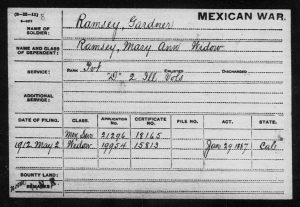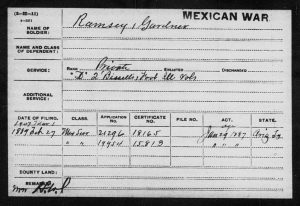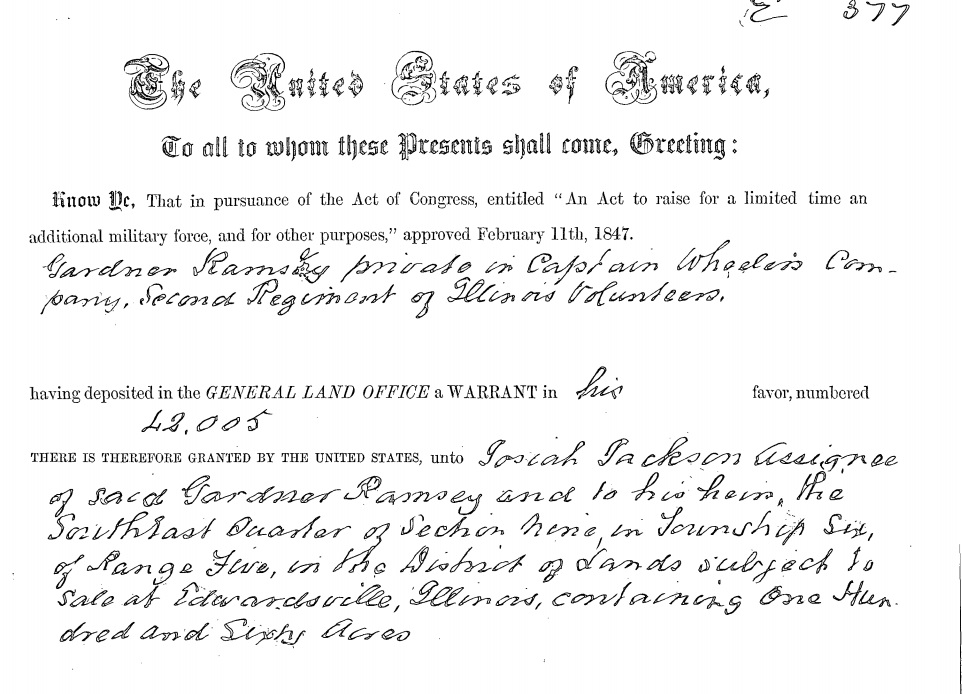 It’s great to discover that uncles of an ancestor have served in 19th century US military engagements as it usually leads to service and pension records. It’s even better when their wife survives them and applied for a pension in their name. The drawback is that when these records are at the National Archives and undigitized it means that obtaining them costs additional money. My funds for records are not unlimited. That’s true for most genealogists.
It’s great to discover that uncles of an ancestor have served in 19th century US military engagements as it usually leads to service and pension records. It’s even better when their wife survives them and applied for a pension in their name. The drawback is that when these records are at the National Archives and undigitized it means that obtaining them costs additional money. My funds for records are not unlimited. That’s true for most genealogists.
I’m not saying that the records should be available for free. I understand that maintaining records costs money. I understand that reproducing records costs money. I don’t think that everything should be digitized by Ancestry so that we can have one online provider for data and images. I don’t think that’s healthy for a variety of reasons.
But I have to balance my need for the record and what I think the record likely will contain with my budget. My need for the record varies from one family to another–depending upon how confused I am about the family, what other records there are, and what I want to know.
The Genealogical Proof Standard suggests I perform an exhaustive search on individuals that I am researching. I understand that. The Genealogical Budget Standard requires that I pay all my bills.
So…should I get that military service record, bounty land application, and pension application for Gardner Ramsey who served in the Mexican War from Illinois (Company D of the 2nd Illinois Volunteer Foot Soldiers unit)? That depends.
Like all questions of this type, it hinges on what I know and what I want to know. Gardner is a brother to Lucinda (Ramsey) Trask. They are both children of Harrison Trask. There are family documents indicating who Harrison’s children are and residential clues are consistent with that family information. But Harrison and his wife Sarah left behind no documents outlining who their children were (except for proof of son who died without children of his own).

Records on Harrison document his county of birth in Virginia. His own pension documents some of his migration into Tennessee, Illinois, Missouri, and eventually Nebraska where he died in 1858. But how much will the compiled military service record on Gardner, the bounty land application on Gardner, and the pension on Gardner help me in really strengthening the family connections I have already established?
I don’t know.
Based upon having seen other compiled military service records, it is doubtful that record will provide much in the way of genealogical detail. The bounty land warrant and pension record may provide some residential clues to Gardner and help me document Gardner’s life after his military service. And there could always be some clue in there that helps me on the larger family. Given that all the Ramsey siblings moved around Illinois after the Mexican War, Gardner’s records could help me document that migration. Given that some of the siblings have relatively common first names and the not-so-unusual last name of Ramsey those identifying pieces of information may be helpful.
But it goes back to my goals–and those are always important to remember.
I’m trying to firm up the connection between Lucinda (Ramsey) Trask (wife of Andrew)–who died in the 1860s in Mercer County, Illinois, at a relatively young age. Something on one of her siblings may help firm that up. I’m also trying to learn more about the family before they settled in Illinois–with the goal of extending the lineage even further. While I fully understand the importance of “researching the entire” family, I have to balance that importance with the limitations of my budget and my specific goals.
The easy answer is to say “get everything.” That’s not always possible. But it’s also possible that obtaining the files gives me clues that allow me to stop “spinning my wheels” and researching somewhat blindly.
With that said, we’re going to get the Bounty Land Warrant application and pension file for Gardner–and we’ll post what we locate in that file. That may help me find more about the family and it may help readers determine what they should do in specific cases like this.

No responses yet